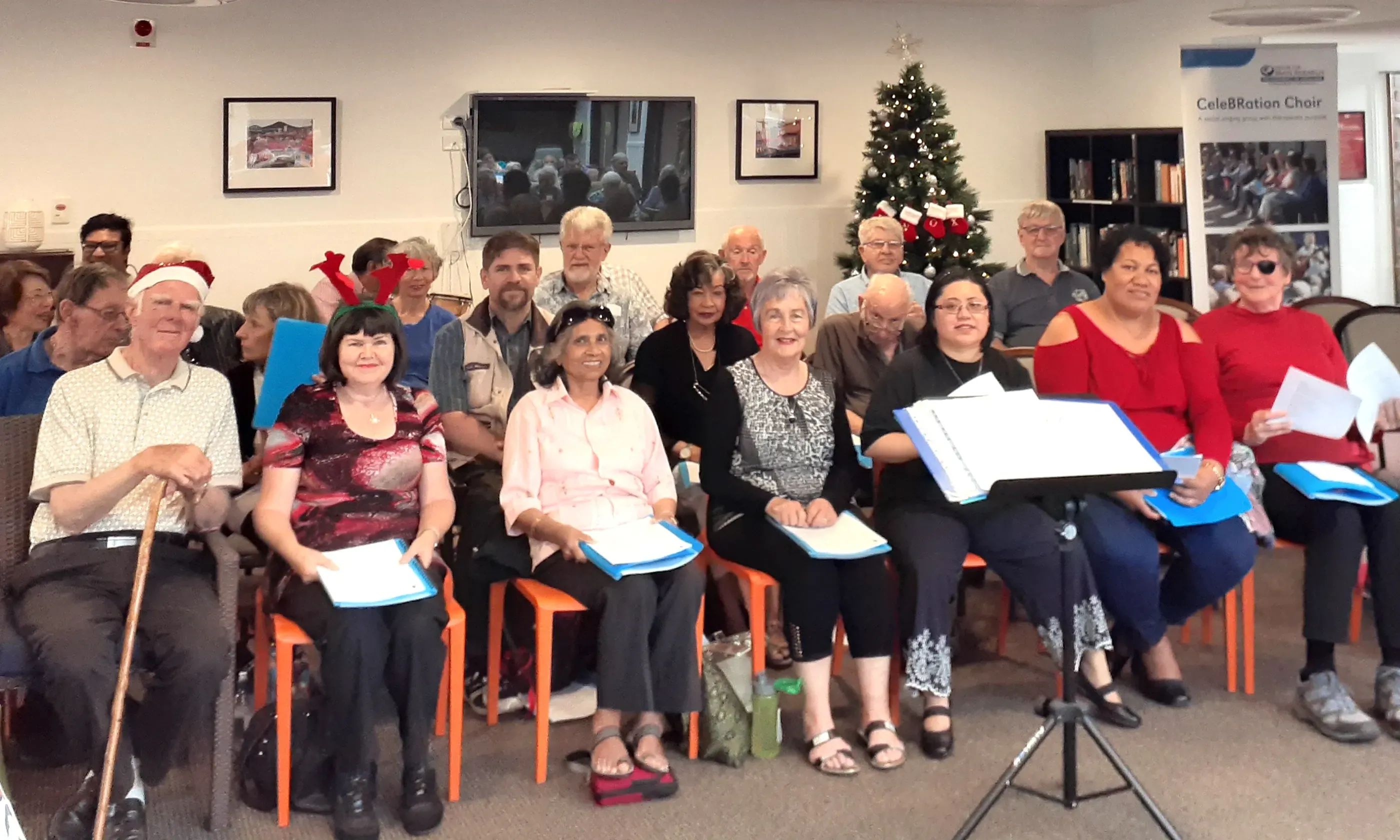How Music Can Change A Life
Written by

Roger Hicks is a longstanding member of the CeleBRation Choir, a music therapist-led singing group for adults with acquired neurological conditions that can affect communication and social participation. The Choir is a long-term partnership between University of Auckland clinicians, researchers and the community.
With this being Music Therapy Week, The Big Idea has asked Roger to explain the importance of this creative outlet in his life.
Picture me as a UK university student in the 1950s.
Rock and roll was all the rage, and I loved dancing with my friends. However, I had to stand aside on occasion, while my left leg moved to its own beat and couldn’t be stopped.
This was the first sign of Parkinson’s disease, but I didn’t know it.
I brought my family to New Zealand and for 25 years, I ignored Parkinson's. Everything was new – so many opportunities. We settled into the Kiwi lifestyle, and I continued my career in IT.
But Parkinson’s doesn’t go away, and eventually a neurologist diagnosed it: progressive, non-fatal, incurable. I was advised to live life to the full and not to hide in a corner; to find people with similar symptoms and to learn from them.
In 2009, I was persuaded to join the CeleBRation Choir a few months after it was formed by the University of Auckland’s Centre for Brain Research. At the time, this was against my better judgment! I felt I had no musical sense, and my voice was rough, gruff and untrained.
I joined anyway!
I found a friendly, sociable singing group, and the music enabled me to join in. My sense of humour has expanded the mix of songs to include John Clarke’s Gumboot Song and The Scaffold’s Lily the Pink!
Since my teens, I have written a few poems. CeleBRation Choir friends encouraged me to read my poems aloud, which helped my voice therapy.

Roger Hicks. Photo: Supplied.
One poem, Don’t Sing, was based on my experiences of growing up and being told not to sing – no wonder I was reluctant to join a choir! I published this poem and two others in an anthology of writing about music therapy.
This locally produced book – Only Connect: Stories and Poems from New Zealand Music Therapy, edited by Claire Molyneux – was subsequently reissued by international publisher, Jessica Kingsley, as Tales from the Music Therapy Room: Creative Connections.
Following this success and positive feedback, my story and this poem featured in a short documentary film about the CeleBRation Choir, by film student Sakshi Chadha. Sing, They All Said, Just Sing was selected for the 2020 Doc Edge Film Festival and generated lots of “me too” comments.
I felt inspired to collaborate in creating a new song about Parkinson’s for the Choir. I wrote a poem, imagining Parkinson’s as an unwelcome visitor:
When Mr Parkie comes your way,
Mr Parkie comes here to stay;
Little by little, year by year,
A little shake here, a little stiffness there?
Do I wish he’d go away?
Yes! Get lost, Parkie!

Roger Hicks reading his poem to choir members. Photo: Supplied.
I asked our music therapist and choir director, Alison Talmage, to compose the music. As this was a lockdown project during the pandemic, we shared drafts and audio recordings via email.
Tackling new songs can be challenging, but my choir friends have worked hard to learn this one.
To celebrate Music Therapy Week 2022, we’ll be singing for residents of both Selwyn Village and Elizabeth Knox care home. Mr Parkie will be included, along with other choir originals and old favourites. You can listen to an extract of Mr Parkie here.
Joining the CeleBRation Choir has expanded my social and intellectual activities and supported my voice therapy and vocal exercises. The Choir has been instrumental in providing me with friends and new challenges.

